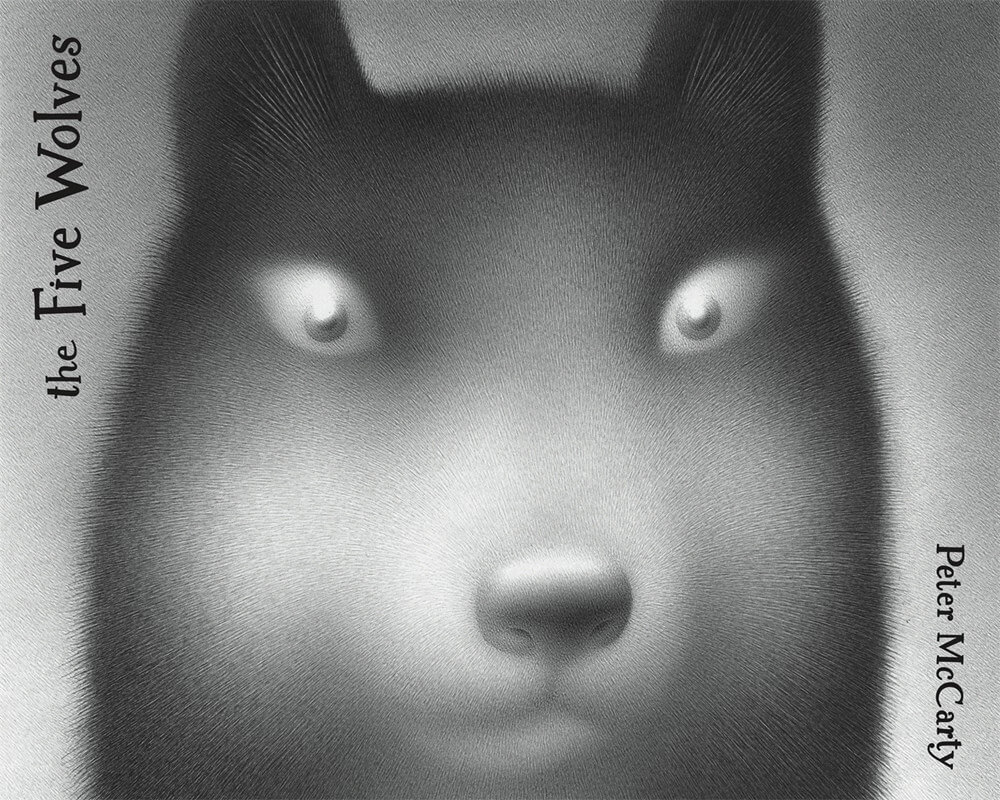At the exact time of this writing, Fleetwood Mac’s 1977 album Rumours sits at No. 21 on the U.S. Billboard 200 chart, a remarkable feat considering the competition from the likes of Taylor Swift, Sabrina Carpenter and more of the world’s biggest pop stars.
Something about Rumours, with all of its interpersonal band drama and historical significance in the rock canon, continues to resonate with listeners, and more specifically, with young people who weren’t even close to alive at the time of the album’s original release. Its songs have appeared in TV shows, movies, TikToks and just about everywhere else one can hear music.
This, in essence, is what author Alan Light set out to unpack in his new book why do kids like this old ass album?”
UCR caught up with Light to learn more about the making of the book and what speaking with those young fans taught him.
This book is about Rumours, but it’s also about a lot of extremely relevant topics in the music industry right now — the influence of TikTok, the power of nostalgia and the ways in which we consider physical sales of albums versus streaming numbers. Those are all topics that could be books themselves, but it was fascinating to see it all in relation to one album. Did you realize that was the book you were writing or did that unfold as you went along?
Yeah, you’re right. I guess I knew going in that the story of Rumours across all this time was a really rich thing to look at, lots of moving parts, lots of different elements, things that changed over time, things that evolved over time. Some of that certainly emerged or moved to the front as I went along reporting the book. But obviously something like TikTok, from the “Dreams” clip with the skateboard and the cranberry juice up to the recent “Silver Springs” phenomenon, was something that I needed to look at. The question around the lore, the back story, and how much that was something that informed the interest of young listeners and how much it didn’t, was a question I knew I needed to explore. I don’t know if I knew going in, that the vinyl sales were a big part of the story, that it sits up there at the top of that chart week in and week out, and what that means. But that was my hope going in — it seemed like this was a story that had a lot of different aspects, a lot of different elements. And obviously that turned out to be true, and then some.
I was really glad to see how heavy of an emphasis you put on this album and this band in particular being important to women and girls — Fleetwood Mac is one of only a handful of rock bands of their era with not one, but two women in frontal roles. How did you source the young people you spoke to for this book and did you find they were very eager to talk about this album, particularly the young women?
Sourcing the young people, the younger listeners for the book, was surprisingly and gratifyingly easy. I wish that I could act like I was such a great reporter that I could go out and find these people, dig them up one at a time, but honestly, one really vague, lame social media post just asking people, “Hey, do you know any young people or your kids or relatives or friends who are big Rumours fans?” got an immediate and overwhelming response, and I think I booked 13 interviews the next day. And that was really validating, obviously, because it showed that, yeah, this thing is out there. This is a phenomenon that’s real and that’s easy to access. And once you start asking people, they immediately turn up. That felt like something that I went through when I did my “Hallelujah” book, which was just finding that anybody that I talked to and mentioned the song, they had some story about the song. They played it at their father’s funeral, their sister played it when their baby was born, it was the first dance at their wedding. Everybody had some connection to “Hallelujah,” and it was not that hard to surface.
And that was sort of what this felt like. And then just moving through the world, at the Stevie Nicks show at the Garden, a year and a half ago, there were these two young women sitting in the seats behind us. And I really tried not to be creepy and ask them gently, “Hey, I’m here with my wife. I’m working on this project that it might be good to talk to you for. I’m not just some creepy old guy trying to get your number. I’ll give you my email. You write me if you’re interested.” But then it just started to grow and find more and more people, especially young women. I was glad that I was able to find young men as well. But I think there’s no question that the sweet spot here is for young women. The cult of Stevie runs very hard and very deep, as you know, for this generation. But I was happy with the geographical range and some of the age range of what I was able to turn up as well.
What was the most surprising thing you learned either about Rumours or about Fleetwood Mac in writing this book?
The most surprising thing for me — I don’t know that it was so much about the album or about the band — but the most surprising thing for me talking to these listeners was that I think if you’re my age or around my age, and you grew up with this album more in real time, it really is defined so much by the anger, by the Stevie versus Lindsey tension. It’s the great breakup album – any poll, any list of the Greatest Breakup Albums of All Time, it’s always number one. It’s always the ultimate example. But when you talk to these people who are fans of the album, but were born 20 years after it came out, they know how the story continued. They know that things didn’t end with Rumours, that these guys did keep working together, that the album became the triumph that it did, that they went on to make other records and have more hits, and, yeah, it was fraught, and they broke up and they came back together, but it’s just one part of this complicated story.
It was really interesting to hear people talk about the lessons that they learned from that and that relationships can continue and can persevere, and that just because they’re complicated doesn’t mean that they have to be blown up forever. I don’t want to say that it was relationship goals for some of these listeners, but they did point to things that they learned from looking at the relationships between these band members, both the friendships, the Stevie and Christine friendship, and what that meant, and also the ways that the shattered couples were able to continue working in service of the music, of the art, of something that was bigger and greater. That’s a really different way to hear Rumours than the way that I went in thinking about it, and that surprised me a lot.
I’m curious if there are other albums that you feel sort of fall into this category of Rumours? In terms of having this lasting legacy and still having a real sense of relevancy 50 years later.
Well, I think the argument I’m making is that there aren’t really any albums that we’ve seen with this kind of legacy and this kind of popularity and this kind of relevance. Certainly, if you look at the chart, there’s nothing that’s close this week. Rumours is a top 20 album — it is number 19 on the album chart right now as we are talking. That’s crazy. The only other albums from the 20th century in the Top 100 – well, this week, [Bruce Springsteen’s] Nebraska is because of the movie, but that’s kind of a cheat. But otherwise, it’s [Michael Jackson’s] Thriller and [Nirvana’s] Nevermind in the lower reaches, and that’s it. And then a bunch of greatest hits records — Bob Marley, Tom Petty, Queen, Elton [John] — but all much lower on the chart. So there isn’t really anything that’s a comparable situation.
I think the ones that you point to, there’s [Pink Floyd’s] Dark Side of the Moon. There’s always going to be 14-year-old boys who smoke weed for the first time and discover Dark Side of the Moon. There’s always going to be a core audience for that. Abbey Road has become the primary Beatles album for recent generations, but seems like it’s fallen some in recent years. But I think if you had sat down with the critical establishment, the music industry, on Dec. 31, 1979 and said, “Here are the biggest albums of the decade: [Eagles’] Hotel California, [Springsteen’s] Born to Run, Rumours, Dark Side of the Moon, [Led Zeppelin’s] Zeppelin IV. Which of these, 50 years from now, will young people still care about and listen to? Nobody — not one person – would have said Rumours. They would have said, “Yeah, it’s great, but that’s kind of a pop record, and the others are big statement, important albums. That’s the kind of art that really lasts.” And all those records sound old and they sound dated to teenagers today. Of course, some of them have fans. [The Who’s] Who’s Next has fans, but nothing close to what Rumours means. And that is so fascinating to me. So, no, it doesn’t feel to me like there’s anything in the same kind of spot.
Listen to ‘Dreams’ From Fleetwood Mac’s ‘Rumours’
Another important point in this book, I think, is that many of the young folks you spoke with emphasized that Rumours is an album they’ve related to differently at different times in their lives. Have you found at all that your own relationship with the album has changed since writing this book?
I think that we all hear Rumours different ways. I think as a more evolved, older and more set in my ways adult human being, maybe these things don’t change as much as they do when you’re an adolescent, when you’re a young person, and you’re discovering these emotions and thinking about these things for the first time and really hearing the range, the spectrum of things that are on Rumours from “You Make Loving Fun” to “Go Your Own Way” to “The Chain” to “Songbird.” It’s an album that presents a beginning, middle, and end, and with “The Chain,” even the afterlife of relationships, if you’re just experiencing those things.
What a lot of these listeners said to me was, after I did have a serious relationship and I did go through a breakup, there’s a lot of things on the record that I heard in a different way than when I first was listening to it. Now I’m in a different place, where I’m seeing how I do maintain relationships with my exes for the first time and struggle with that, and so I hear some of these other songs in a different way. I don’t know that later in life, those things are changing so much. I think you hear the musical greatness, the different parts, the different elements, things that continue to come into focus in different ways over time.
Life goes on. You have kids, your marriage goes on, you break up with somebody, you hear things in different ways. I don’t know that it’s as dramatic as it was earlier in life for me or for these other listeners, but certainly there are songs — I’ve been listening to it the last few days for obvious reasons, and hearing different things, certainly hearing different things musically in the playing, different things in the rhythm section, in the melodies. That’s always going to continue to open up and expand. That’s what a great record does.
What do you think about the fact that Stevie and Lindsey are apparently back on speaking terms as of recently?
Oh, the Stevie and Lindsey saga, the greatest soap opera in rock and roll history. It’s going to continue to change as long as they’re around, as long as they’re with us. I’m glad if they seem to have made some peace. I have no idea why it took 50 plus years for the Buckingham Nicks record to get reissued. None. Nothing has ever been clarified about why it didn’t come out. I don’t know why it happened now, but I’m glad they got it together enough to agree to get it back out in the world.
I’m glad they’re speaking again. I don’t yet put a lot of faith in this idea of this 50th anniversary of Rumours reunion. Really, it seems like that’s all from one British tabloid, and then everybody picking up on that coverage. And I need a little more real evidence than that before I’m going to get excited about it. I don’t know the state of John McVie’s health at all, if talking about him doing something, much less something 18 months from now, is a realistic thing to talk about. But look, the world is a better place if Stevie and Lindsey are communicating and at least thinking about and talking about work, whether their own or together. I’m glad they both did this new Song Exploder episode that just came out. We shall see – we’ve been here before.
READ MORE: Every Classic-Era Fleetwood Mac Song Ranked
Do you think people — young people specifically _ will be listening to Rumours in another 50 years?
It’s kind of a sucker’s game, as we’ve seen with Rumours, to guess what people are going to listen to decades from now. It was really interesting to me to go back — I mentioned in the book that at the peak of ’90s women in rock focus, the year of the first Lilith Fair, Rolling Stone put together a book called Trouble Girls. And I went back and looked at it, and there are two paragraphs about Stevie Nicks in that book, in the middle of a chapter about Boho women rockers. The words Christine McVie do not appear in the book. If you were doing a Women in Rock book today, Stevie Nicks is probably your cover. So these things do go through cycles even Rumours, as much as it has continued to reappear in the culture over and over again…
Any time you write a book, it’s a bet that you place that three years after you have this idea, people are still going to care about it. You don’t know, it could flame out. It could be replaced by something else. You’re taking a guess at a phenomenon and hoping that it’s going to stick. And with this one, somehow, miraculously, Rumours seems even bigger now than it did a couple of years ago when I started work on this book. As I note, it’s amazing to see that every time Rolling Stone or whoever do their lists of the greatest albums of all time, Rumours continues to go up higher. Every time they do it, everything else that’s an older album pretty much drops over time. … But not Rumours. Rumours continues and just seems to escalate, the impact continues to grow. I have no idea what that looks like decades from now, but for the foreseeable future, it still looks like a pretty good bet.
Listen to ‘The Chain’ From Fleetwood Mac’s ‘Rumours’
Fleetwood Mac Albums Ranked
It’s easy to focus on Lindsey Buckingham and Stevie Nicks when considering a list of Fleetwood Mac albums, but the band’s legacy extends well beyond that.
Gallery Credit: Nick DeRiso


















